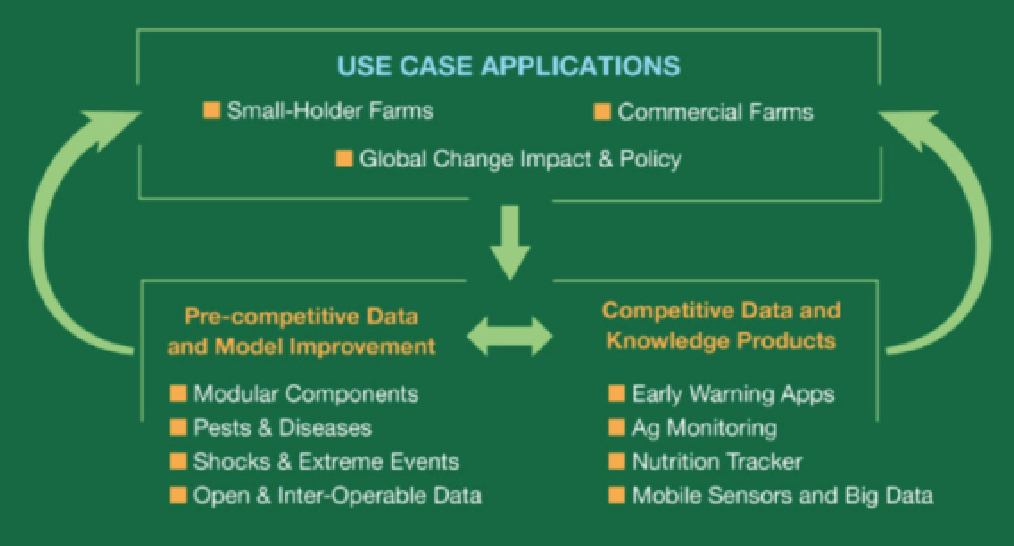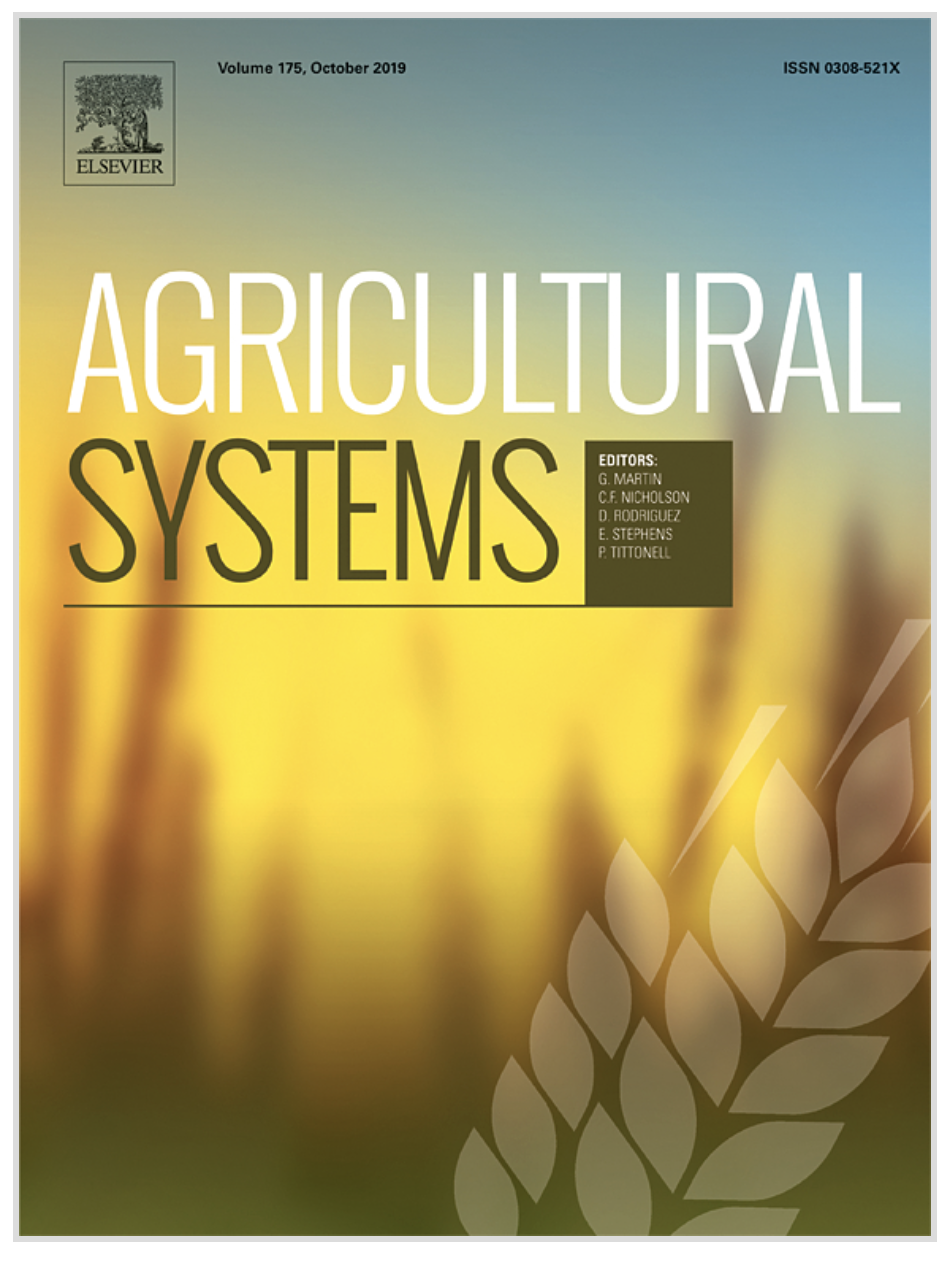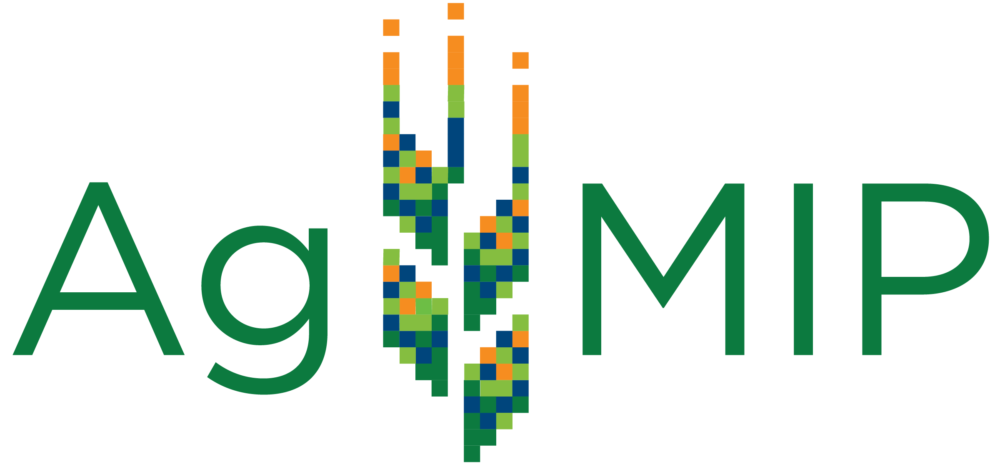Next-Generation Models and Tools
Agricultural system models provide predictive and assessment capability to a wide range of decision-makers in the private and public sectors. There has been extensive and beneficial research to improve agricultural models – but the fact remains that many of the models used today are the result of investments made 30-40 years ago.
AgMIP has convened internationally renowned and early career experts from around the world for a Next Generation Models Groundwork scoping study, initially funded by the Bill and Melinda Gates Foundation, to review the current state of agricultural system models and to explore possibilities for significantly advancing the way they use data and information technology.
The complexity of agricultural challenges facing the nation and the world are such that agricultural data stewardship and advanced tools are needed to enable sustainable production that can meet future national and international food, fiber, and bioenergy needs. There is a major gap between the potential value of data collected in agricultural experiments and the value currently obtained through use of those data.

Typically, data collected in experiments are used for the original research purpose only. Vastly greater value might be obtained if the data were combined across locations, time, and management conditions so that one could develop or evaluate models against emerging patterns and key distinctions. In this way data could inform decision support systems, assess the benefits of new technologies or management, changes in climate, and trade-offs between productivity gains and environmental risks. AgMIP and USDA have joined to explore concepts for harmonizing agricultural databases and models through the development of a National Agricultural Data Network with harmonized data.
Future agricultural decisions are likely to include increasing linkages among a diverse suite of knowledge products. These will range from mobile technology “apps” to personal computer-based dashboards to online analytical and communication tools to things that have not yet been considered. Discovery processes using ‘translational’ tools to improve processes of discussion and decision amongst diversely trained and experienced persons are needed to bridge gaps in understanding between researchers and modelers of physical, biological, and social systems. AgMIP is actively contributing support of a range of discussion and decision processes to advance translational tools and increase engagement with decision makers.
With its partners, AgMIP has developed an approach to link harmonized site data with weather, soil, management and phenotype data and is now leading a collaborative effort to design connections also with the genotype data. Combining the genotype and phenotype data for breeding populations grown across multiple locations will allow analysts to quantify effects of specific genes on various phenotypic processes as well as genotype – environment – management (GxExM) interactions.
AgMIP NextGen Research Pillar Featured in Agricultural Systems Special Issue
In July 2017, Agricultural Systems released a special issue on the Next Generation Data, Models and Knowledge Products. Focusing on the Agricultural Model Intercomparison and Improvement Project (AgMIP) Next Generation (NextGen) research pillar, this special issue provides insights in the current state of agricultural system models, the future visions of agricultural systems modeling, and the topics that must be addressed to turn this vision into reality. Thanks to the generous contribution of The Bill and Melinda Gates Foundation, the special issue is available for public access via open agreements and is available for download here.
Agricultural Systems invited AgMIP Principal Investigators John Antle, James Jones, and Cynthia Rosenzweig to guest-edit a special issue on the next generation of agricultural systems data, models and knowledge products. In their introduction, Antle, Jones & Rosenzweig acknowledge that while agricultural systems models have become important in providing valuable information to decision makers, there is potential for these models to improve substantially. Most notably, the recent advancements in data, information, and communications technology have yet to be adopted by agricultural system data, models, and knowledge products.
Read more here.

Table of Contents
Next generation agricultural system models and knowledge products: Synthesis and strategy John M. Antle, James W. Jones, Cynthia Rosenzweig (Pages 179-185)
Next generation agricultural system data, models and knowledge products: Introduction John M. Antle, James W. Jones, Cynthia E. Rosenzweig (Pages 186-190)
